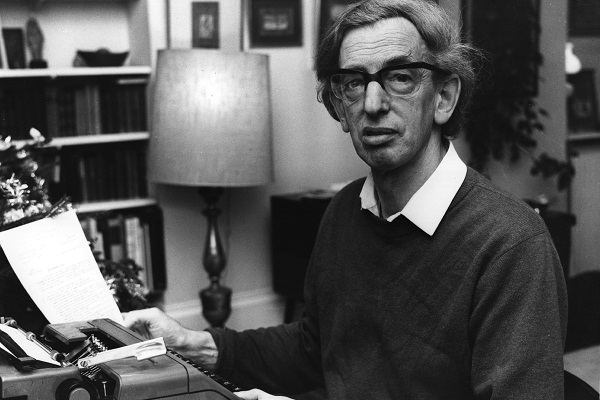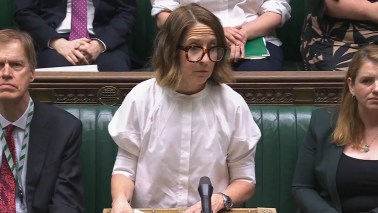A few years ago, I wrote a review of Eric Hobsbawm’s last collection of essays and noted
‘Hobsbawm is now 94, and although I have no wish to usher the old boy from the room, I can see his obituaries now. Conservative and liberal writers will say that his loyalty to totalitarianism disfigured his writing, most notably, in his whitewashing of Soviet atrocities in The Age of Extremes, his history of the 20th century. Leftists will say he was the greatest Marxist historian of our times, whose sweeping accounts of the world from the Enlightenment to the present have shaped the way we think. Neither will acknowledge that both have a case.’
I’ll have to wait for tomorrow’s papers to see if I’m right, but I can defend my argument now. Hobsbawm was a great historian with a sweeping vision and an ability to comprehend and communicate the vast movements in human history. He also supported some of the most monstrous regimes history has ever inflicted on the human race. Never once to my knowledge did he understand why people pulled him up on that point. As I pointed out, his autobiography reveals his incomprehension in almost comic detail.
‘When he first visited the Soviet Union in 1954, Eric Hobsbawm discovered that the theory of a workers’ state and the practice of a Moscow still bleeding from Stalin’s last purge did not quite gel. “It was an interesting but also a dispiriting trip for foreign communist intellectuals,” he recalled in his autobiography, “for we met hardly anyone there like ourselves.”
Wrong part of Russia, Eric.
If he had gone to Siberia, alongside the corpses of “anti-Soviet” Ukrainians, Lithuanians, Estonians, Latvians, Chechens, Tartars and Poles, of tsarists, kulaks, Mensheviks and social revolutionaries and of merely unlucky citizens who had been denounced by malicious neighbours, or rounded up by the secret police to meet an arrest quota, Hobsbawm would have found the bodies of communist intellectuals – just like him.
No one killed as many communists as the communists did. If Hobsbawm had followed the logic of his convictions and moved from Nazi Germany to seek a home in the Soviet Union rather than Britain, his chances of surviving would have been slim. Either the party would have shot him in the great purge for being foreigner and a Jew to boot, or he would have been forced to denounce innocent comrades to save his skin. After concluding the Nazi-Soviet pact, Stalin handed German communists over to Hitler as a gesture of goodwill. If the purge of 1936-38 had not killed Hobsbawm, the pact of 1939 probably would have done for him instead.’
I expect we will hear one excuse tomorrow that ought to have been buried with the Soviet Union: “communists excused Stalin because they were consumed by the laudable desire to fight fascism”. It is a half truth at best. The far left of the 1930s did indeed fight fascism. But in 1939 Stalin stood on his head and signed a pact with Hitler. For two years, until Hitler invaded the Soviet Union, western communists and their sympathisers stood on their heads too and became the Nazis’ de facto allies. I have always been fascinated by ‘the midnight of the century’, when far left and right united against the middle, because it echoes our own time when liberal leftists excuse and indulge the radical Islamist right. Here’s a long online extract from my book What’s Left, in which I look at how desperate left wing writers became to say that Hitler was not the real enemy. In it I say:
‘Eric Hobsbawm and Raymond Williams, the two most respected left-wing intellectuals of my youth, accepted the accommodation with Nazism and produced a pamphlet that defended the Soviet invasion of Finland which the Hitler–Stalin pact had authorized. Hobsbawm and Williams claimed that far from engaging in an imperial land grab, Stalin was protecting Russia from an invasion by British imperialists. I’ve read it twice to be sure, but nowhere do Hobsbawm and Williams explain how a Britain which was on her knees and couldn’t defend her cities was in a position to march on Moscow. Williams blithely admitted later that he and Hobsbawm were just obeying the party’s orders. ‘We were given the job as people who could write quickly, from historical materials supplied for us. You were often in there writing about topics you did not know very much about, as a professional with words.’
Read the whole extract to understand how widespread left toleration of fascism became in the early years of the war. But try to understand too why, perhaps because of my background on the left – my grandfather was Hobsbawm’s commissar – I cannot despise Hobsbawm or indeed my grandfather as I would despise an old Nazi. If you need convincing, look at Hobsbawm’s Age of Extremes The most brilliant analysis of the 20th century sits alongside the most abject apologias for tyranny. For all his contradictions, I’ll miss the better side of his intellect.







Comments